At the start of relationships, it seems easier to brush off or forgive the little things that peeve you about each other. But if they aren’t addressed, over time, the trivial frustrations accumulate, which can lead to partners resenting each other or getting annoyed with one another over the most insignificant things.
This woman recently noticed that the resentment her husband has for her is getting almost unbearable. Every time something goes right for her, he makes it his mission to rain on her parade, hating how ‘easy’ she has it. Unsure what to do about such a relationship hiccup, the wife asked for advice online.
Resentment can quickly build up in relationships, even over trivial things

Image credits: Getty Images / Unsplash (not the actual photo)
This also seems to be the case with this couple, where the husband starts getting annoyed every time something goes right for his wife




Image credits: Getty Images / Unsplash (not the actual photo)






Image credits: freepik (not the actual photo)


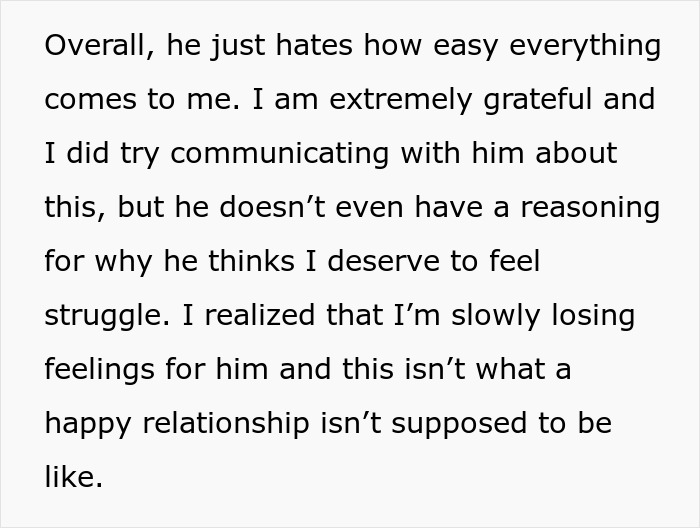
Image credits: ThrowRA_pianist_

Image credits: freepik (not the actual photo)
We can resent someone even for something totally out of their control
In long-term relationships, it’s common to feel annoyed or angry at your partner. What couple hasn’t bickered about whose turn it is to cook dinner tonight or take out the trash? While such experiences are normal, leaving issues, even small ones, unresolved can manifest into grudges that can turn into resentment.
Resentment is a very complex emotional response we have when we feel mistreated or wronged by another person. It encompasses a mix of anger, bitterness, disappointment, and disapproval toward the person we believe treated us unfairly. Resentment is also highly dependent on our perception of the situation, which means that we can resent someone even for something totally out of their control, like them having a more affectionate family or a better-paying job.
Some mental health experts say that resentment is part of the jealousy and envy family, which we might feel when we want something that someone else has. At the same time, resentment is a subcategory of feeling ‘let down’ and frustrated about it, which just shows how complex this emotional response is.
Resentment can sneak up even on the happiest couples. It can make them irked by everything each other does, and it only gets worse and worse over time. “It’s almost like when you put something in a pressure cooker and it’s about to pop and you just keep adding and adding and adding,” Anabel Basulto, MFT, a licensed marriage and family therapist, explained.

Image credits: cookie_studio / freepik (not the actual photo)
“You’re irritated for a reason and you need to figure out what that reason is”
Even though resentment is an awful feeling to have towards your partner, it doesn’t mean that the relationship is doomed. “Don’t feel like, I’m annoyed so my relationship is over,” Basulto said. “You’re irritated for a reason and you need to figure out what that reason is.”
When you can pinpoint exactly what makes you resent your partner, the next step is communication. Dr. Alexandra H. Solomon, clinical assistant professor of psychology, suggests the conversation goes something like this. “I am aware that I am starting to feel resentful. Can we please look together at this problem?” It’s important that the other partner responds to such a request with empathy and curiosity, not defensiveness and dismissiveness, Solomon additionally notes.
If conversations aren’t working, couples might consider working together with a therapist. “A professional therapist can help you navigate the conversation and prevent further damage from occurring due to miscommunication or misunderstanding of what the real issues are,” Basulto said.
In a healthy relationship, couples should be able to work through their issues. If that’s not the case, the decision to separate might need to be made. But such a choice is the couple’s and only the couple’s to make.
The commenters believe the husband does what he does because he hates his wife








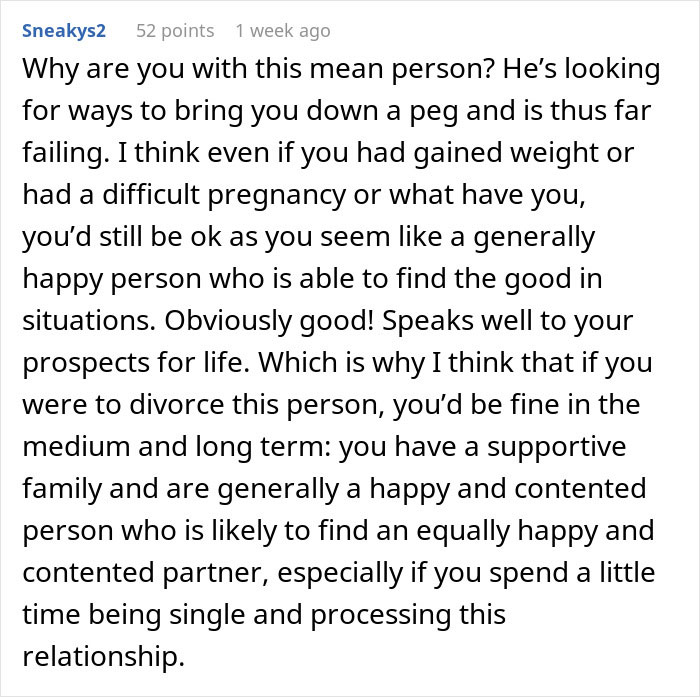







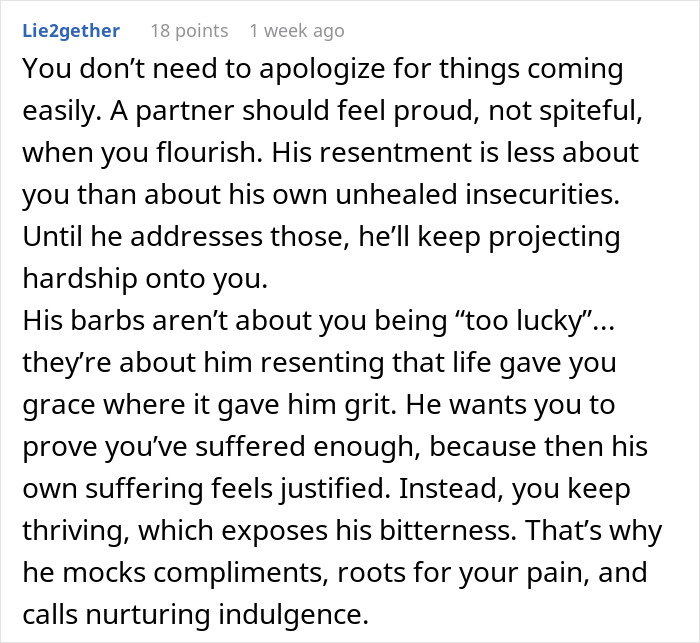


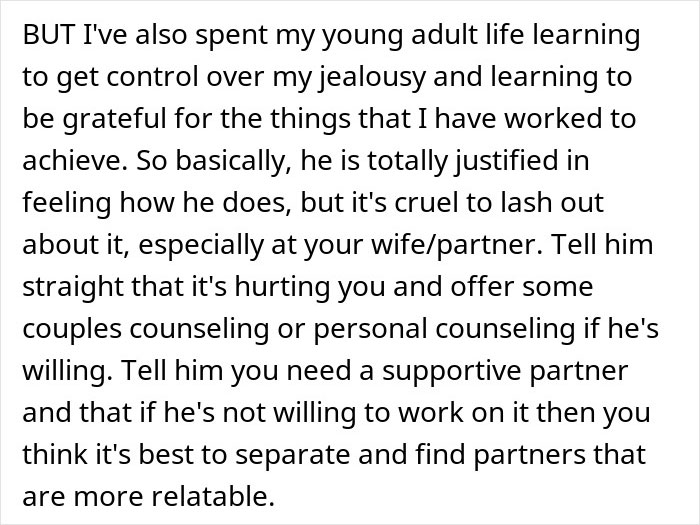
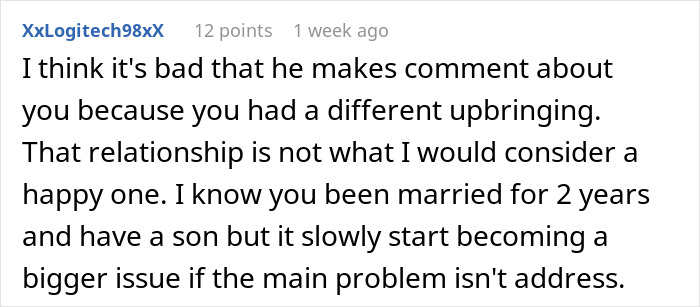




 Follow Us
Follow Us





